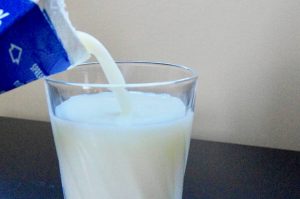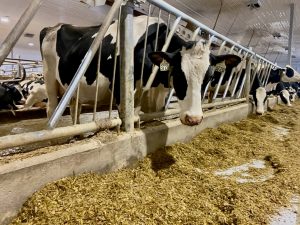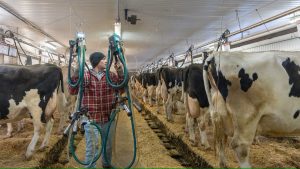
Despite the news that one of Canada’s major dairy producers is closing two facilities by this time next year, P.E.I.’s dairy industry remains strong, says Ron Maynard, president of the P.E.I. Federation of Agriculture.
“We continue to have another one-per-cent increase in our quota come Feb. 1 and a small price increase, also Feb. 1. The market continues to grow and we’re pleased to fill it,” said Maynard, also a dairy farmer in Tyne Valley and a former board member with Dairy Farmers of Canada.
Last week, the Montreal-based dairy company Saputo announced it was closing a facility in Timmons, Ont., in September and one in Saint John, N.B., in January 2021. The operations are going to be integrated into other facilities across Canada in order to improve efficiency, according to the Financial Post.
About 280 jobs are expected to be impacted by the closures.
A reason cited for the shake-up is the growing trend towards non-dairy alternatives. But Maynard sees it as another example of a business consolidating and modernizing.
Sylvain Charlebois, senior director of the Agri-Food Analytics Lab at Dalhousie University, is disappointed to see the closures but not surprised.
Given the choice between closing an older facility or retrofitting it, closing is the more economic decision. As well, Charlebois sees the market going in multiple directions, including the consumer trend towards non-dairy alternatives, especially with companies like Starbucks leading the way by encouraging consumers to consider non-dairy options.
“Saputo’s structure needs to change. It’s similar to Maple Leaf Foods in recent months. They completely changed the structure of the company in order to adapt to consumer trends,” he said.
P.E.I. isn’t immune from those global trends toward non-dairy alternatives, he added.
Maynard doesn’t see these moves by Saputo as a sign for concern because the majority of global consumers are still buying dairy.
“People’s diets shift. We’re seeing a decrease in the consumption (of) fluid milk, but we’re seeing increases in the consumption of cheese within the Canadian market and within the world market also. Dairy is still a very sound source of nutrients, proteins, fat and energy,” he said.

























